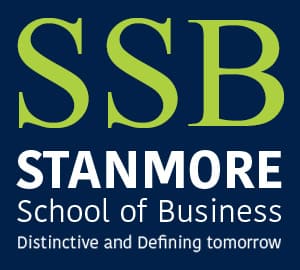Course details
Loading...
Generating course details...
• Business Analysis Techniques: This unit covers essential skills and tools for business analysts, including data analysis, process mapping, and requirements gathering. It helps professionals to identify business needs and develop solutions to address them.
• Project Management: Understanding project management principles and methodologies is crucial for business analysts to lead and manage projects effectively. This unit covers project planning, execution, monitoring, and control.
• Stakeholder Management: Effective stakeholder management is vital for business analysts to ensure that all stakeholders are engaged and informed throughout the project lifecycle. This unit covers stakeholder identification, analysis, and engagement.
• Business Case Development: Developing a solid business case is essential for business analysts to justify investment in projects and initiatives. This unit covers business case development, including cost-benefit analysis and return on investment (ROI) calculation.
• Data Analysis and Visualization: Business analysts need to be proficient in data analysis and visualization to extract insights from data and communicate them effectively to stakeholders. This unit covers data analysis tools and techniques, including data visualization and reporting.
• Communication and Interpersonal Skills: Business analysts need to possess excellent communication and interpersonal skills to work effectively with stakeholders, including project sponsors, team members, and customers. This unit covers communication strategies, conflict resolution, and team management.
• Business Process Improvement: Business analysts play a critical role in identifying and implementing business process improvements. This unit covers process mapping, analysis, and redesign, as well as change management and implementation.
• Requirements Gathering and Management: Effective requirements gathering and management are essential for business analysts to ensure that project deliverables meet stakeholder needs. This unit covers requirements gathering techniques, including interviews, surveys, and workshops.
• Risk Management: Business analysts need to be aware of potential risks and develop strategies to mitigate them. This unit covers risk identification, analysis, and mitigation, as well as risk management frameworks and tools.
• Business Intelligence and Analytics: Business analysts need to be proficient in business intelligence and analytics to extract insights from data and inform business decisions. This unit covers business intelligence tools and techniques, including data warehousing, ETL, and data visualization.
• Digital Transformation: Business analysts need to be aware of digital transformation trends and technologies, including cloud computing, artificial intelligence, and the Internet of Things (IoT). This unit covers digital transformation strategies, including change management and implementation.
• Business Analysis in the Digital Age: This unit covers the role of business analysts in the digital age, including digital transformation, data analytics, and artificial intelligence. It helps professionals to stay up-to-date with the latest trends and technologies in business analysis.
• Business Analyst Role in Agile and Hybrid Environments: This unit covers the role of business analysts in agile and hybrid environments, including Scrum, Kanban, and hybrid frameworks. It helps professionals to understand the business analyst role in these environments and how to work effectively with development teams.
• Business Analysis in the UK: This unit covers the business analysis profession in the UK, including industry trends, best practices, and regulatory requirements. It helps professionals to understand the business analysis landscape in the UK and how to navigate it effectively.
• Business Analyst Certification: This unit covers the business analyst certification process, including certification bodies, exam formats, and study materials. It helps professionals to prepare for certification and advance their careers as business analysts.
• Business Analysis Tools and Technologies: This unit covers business analysis tools and technologies, including project management software, data analysis tools, and collaboration platforms. It helps professionals to select the right tools and technologies for their projects and work effectively with stakeholders.
• Business Analyst Career Development: This unit covers business analyst career development, including career paths, job roles, and professional development opportunities. It helps professionals to advance their careers as business analysts and achieve their career goals.

